Did you ever wonder if your feline friend can join you in savoring a plate of delicious spaghetti? The short answer is that cats can technically eat spaghetti, but there’s more to it than meets the eye.
While a small taste of plain, cooked spaghetti might not pose an immediate danger to your furry companion, there are vital aspects you should be aware of when contemplating this Italian culinary adventure.
This article dives into the intriguing world of kitty and spaghetti, examining the potential risks and benefits to ensure your beloved pet stays safe and healthy.
Is Spaghetti Safe for Cats?
The occasional nibble of plain, unseasoned spaghetti isn’t likely to cause immediate harm to your cat, but it’s essential to understand why spaghetti isn’t an ideal choice for their diet.
- Nutritional Imbalance
Cats are obligate carnivores, so their bodies require a diet primarily based on animal protein. Pasta, on the other hand, is primarily composed of carbohydrates. Feeding your cat too many carbohydrates can lead to weight gain and other health issues.
- Digestive Discomfort
Kitty has a different digestive system than humans. Large amounts of pasta can be complex to digest, potentially causing digestive discomfort, including diarrhea or vomiting.
- Sauce and Seasonings
The biggest concern with spaghetti is the sauces and seasonings commonly used in human recipes. Ingredients like garlic and onions are frequently included in these sauces, which are toxic to cats.
- Lack of Essential Nutrients
Pastai lacks many essential nutrients that cats require for their overall health, such as taurine, which is crucial for heart and eye health.
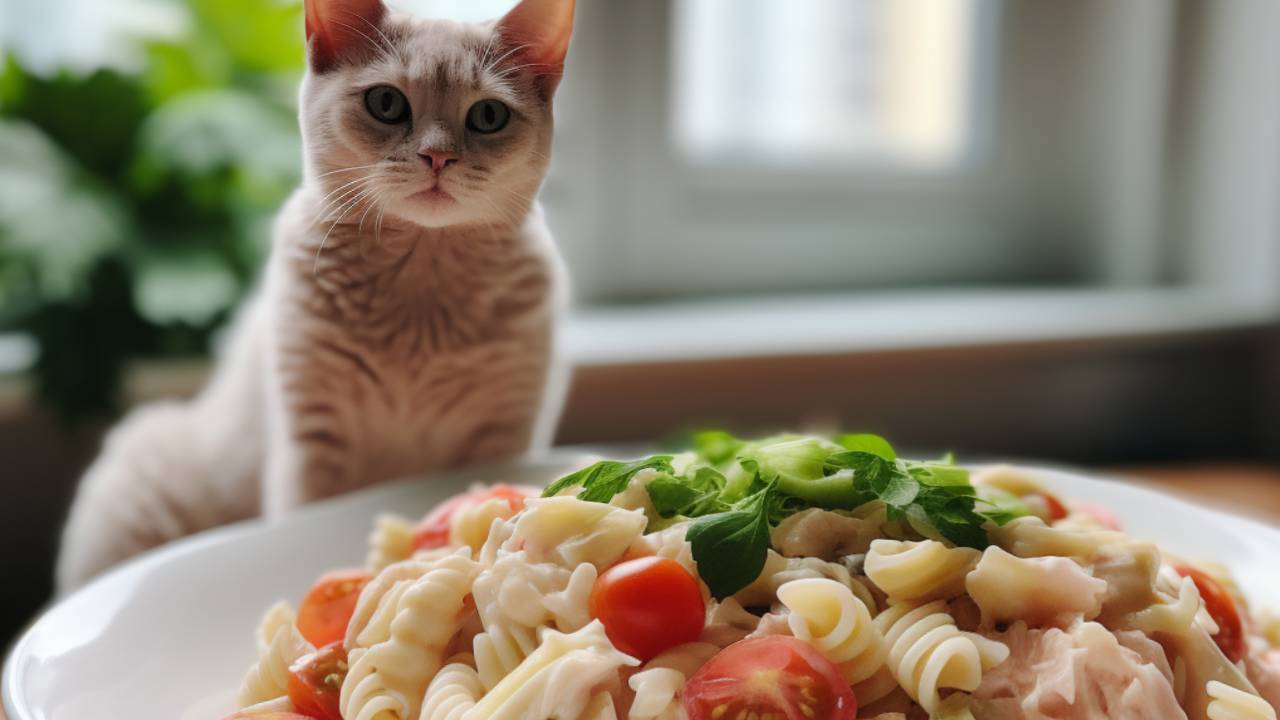
The Dangers of Pasta for Cats
Pasta and spaghetti can pose several significant dangers to our feline companions. While cats are curious creatures and may occasionally nibble on human food, understanding these risks is crucial for their well-being:
- Toxic Ingredients
One of the most concerning aspects of pasta for kitty is the potential inclusion of toxic ingredients in sauces and seasonings. Garlic and onions, common ingredients in many pasta recipes, are highly toxic to cats.
Even a tiny amount can lead to oxidative damage to their red blood cells, which can be life-threatening.
- High Carbohydrate Content
Cats have evolved as obligate carnivores, primarily requiring animal-based protein for their nutrition. Pasta is predominantly composed of carbohydrates, and feeding your cat a diet high in carbs can lead to weight gain, obesity, and associated health problems.
- Digestive Issues
Cats have a unique digestive system for efficiently processing animal proteins. Feeding them large quantities of pasta can lead to digestive discomfort, including diarrhea, gas, or vomiting.
- Choking Hazard
Cats are known for their minimal chewing when eating. Long strands of spaghetti or pasta can present a choking hazard if swallowed without proper chewing.
- Obesity Risk
High-carb diets, like pasta, can contribute to obesity in cats, leading to other health issues, such as diabetes, joint problems, and a decreased quality of life.
To safeguard your cat’s overall well-being, prioritize a well-rounded, premium cat food that fulfills their nutritional requirements.
If you suspect your cat has ingested harmful substances or has concerns about their health, you must consult your veterinarian for prompt guidance and assistance.
What Should I Do if I Catch My Cat with Spaghetti?
If you catch your cat nibbling on a small piece of plain, unseasoned spaghetti, there’s no immediate cause for concern. However, if your cat ingests a significant amount of spaghetti with any harmful ingredients, here’s what you should do:
- Contact Your Veterinarian
If you suspect your cat has consumed a toxic ingredient or is experiencing digestive issues, contact your veterinarian immediately for guidance.
- Prevention
To prevent future incidents, store human food securely and keep your cat’s regular meals consistent to discourage them from seeking other food sources.
Final Word
Cats can technically eat spaghetti in small amounts, but it’s not recommended due to the potential risks and lack of nutritional value.
Sticking to a diet specifically formulated for your feline friend’s needs is always best. If you ever have concerns about your cat’s health or dietary choices, consult your veterinarian for professional advice.

FAQs
Can cats eat plain, unseasoned spaghetti?
Yes, in moderation, plain cooked spaghetti without sauces or seasonings is generally safe for cats.
Is sauce made from tomatoes safe for cats?
No, tomato sauce often contains ingredients like garlic and onions, which are toxic to cats.
What should I do if my cat ingests garlic or onions from spaghetti sauce?
Contact your veterinarian immediately, as these ingredients can harm cats.
Can cats eat pasta with olive oil or butter?
While plain pasta with a small amount of olive oil or butter is less harmful than some sauces, it’s still not an ideal cat food choice due to its high carbohydrate content.
Can cats eat linguine?
Cats can technically eat small amounts of plain, cooked linguine without immediate harm, but it’s not a recommended or nutritionally balanced part of their diet.


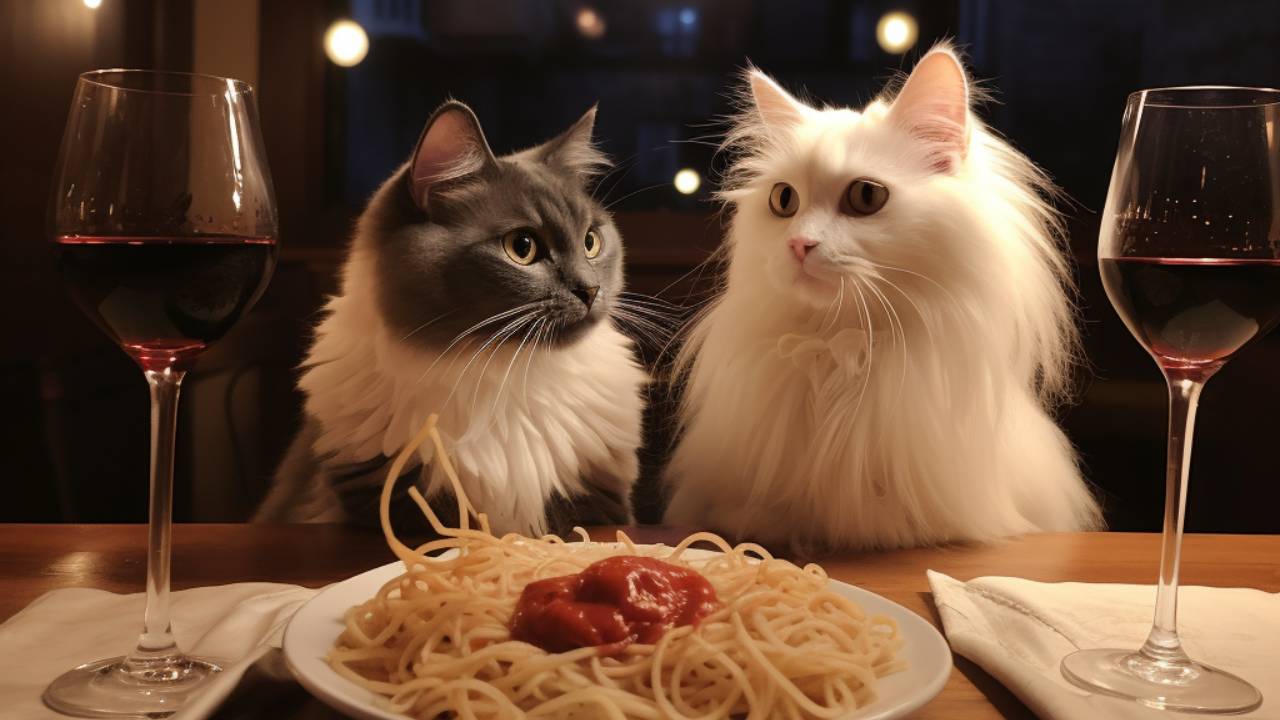
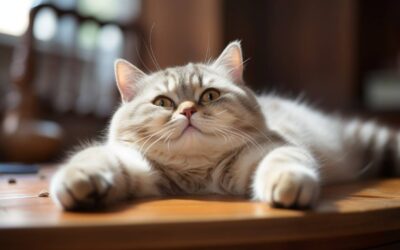
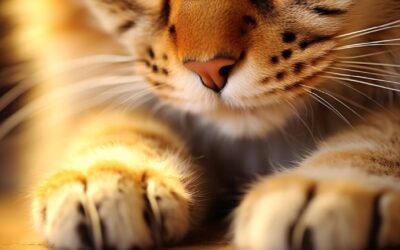
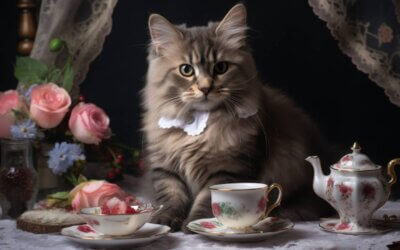
why should cats eat spaghetti?